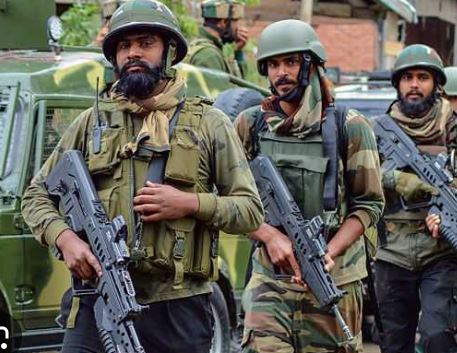Introduction: The Essence of Internal Security
India’s international stature and domestic stability are inextricably linked. A nation’s global influence is profoundly contingent on its internal cohesion and capacity to address domestic disparities, thereby preventing any fertile ground for terrorism or extremism. The recently settled electoral dust has ushered the NDA government back into the helm with Prime Minister Narendra Modi boasting an impressive catalog of accomplishments. Internationally, India’s prestige is arguably at its zenith since Independence, with a burgeoning economy and a newfound resilience that even China acknowledges. It is imperative for the government to formulate a meticulously orchestrated internal security plan for the next five years, encapsulated in nine critical points.
Internal Security Doctrine: A Strategic Framework
A comprehensive national security doctrine (NSD) is essential. Despite drafts prepared by the National Security Advisory Board, approval remains elusive. All major powers possess an NSD, outlining internal and external threats and corresponding policies. If the development of an NSD proves arduous, at least an internal security component should be devised to eschew the prevalent adhocism in addressing security challenges, particularly during government transitions.
Establishment of an Internal Security Ministry
The Ministry of Home Affairs is currently overburdened, often leading to delayed responses to urgent internal security matters. A dedicated Internal Security Ministry, led by a young, dynamic junior minister, could revolutionize the handling of these issues. Rajesh Pilot’s tenure exemplifies the positive impact such an arrangement can achieve.
The Jammu and Kashmir Conundrum
Despite the Home Minister’s claims of a 66% reduction in terror incidents post-Article 370 abrogation, Jammu and Kashmir remain far from normal. Recent terrorist attacks in Jammu underscore the Pakistani deep state’s persistent objectives. To counter this, the government must promptly reorganize the security grid, restore statehood, and conduct Assembly elections.
Addressing the Northeast: The Beating Heart
Prime Minister Modi’s characterization of the Northeast as “a piece of our heart” is poignant, yet the region’s heartbeat is fraught with discord. The 2015 Framework Agreement with the Nagas raised significant hopes, yet the insistence on a separate flag and constitution by the NSCN (IM) remains a stumbling block. The government must enforce the suspension of operations agreement rigorously and curtail extortion and forcible recruitment by rebels. Manipur, plagued by ethnic conflicts, necessitates the Prime Minister’s direct intervention to foster peace. A comprehensive approach to illegal migration, drug trafficking, and arms smuggling is also crucial.
The Naxal Dilemma
The government touts a significant decline in left-wing extremism (LWE) violence, with a reduction in affected districts and police stations. However, with the Naxals on the back foot, it is time for a reconciliatory approach. A unilateral ceasefire, coupled with genuine dialogue addressing their grievances, could mainstream them effectively.
Restructuring the Intelligence Bureau and CBI
The Intelligence Bureau (IB), established in 1887, requires a statutory basis to prevent political misuse. Similarly, the Central Bureau of Investigation (CBI), deriving its mandate from a 1946 act, needs restructuring to strengthen its legal foundation, infrastructure, and resources. Implementing these reforms can enhance their operational efficacy and integrity.
Transforming State Police Forces
Transforming the “Ruler’s Police” into a “People’s Police” is paramount. This echoes the legacy of Robert Peel, whose police reforms in Britain remain influential. Prime Minister Modi has an opportunity to spearhead this transformation, aligning the police force with democratic values and community service.
Central Armed Police Forces: Addressing Internal Challenges
The Central Armed Police Forces (CAPFs), with over a million personnel, face internal challenges such as unplanned expansion, inadequate training, and disciplinary issues. Establishing a high-powered commission to address these problems is essential for their long-term stability and effectiveness.
Leveraging Technology for Policing
Technological advancements can serve as force multipliers in policing. As advocated by the Prime Minister at the 2021 DGPs’ conference, a high-powered technology mission should be established to recommend the adoption of cutting-edge technologies to address current and future policing challenges.
Conclusion: Cohesion and Resilience
India’s global strength is mirrored by its internal stability and ability to resolve domestic disparities. Implementing these strategic measures with foresight and imagination will significantly enhance the country’s internal security landscape, fostering an environment where extremism cannot thrive.
Summary:
| Key Learning Points | Details |
|---|---|
| National Security Doctrine | Essential for outlining internal and external threats and policies. |
| Internal Security Ministry | A dedicated ministry can improve response times and efficiency. |
| Jammu and Kashmir | Reorganization, statehood restoration, and elections are imperative. |
| Northeast Challenges | Addressing ethnic conflicts and implementing the 2015 Framework Agreement. |
| Naxal Issue | Advocating for dialogue and reconciliation with left-wing extremists. |
| Restructuring IB and CBI | Statutory basis and enhanced infrastructure for operational integrity. |
| Transforming State Police | Transition from “Ruler’s Police” to “People’s Police”. |
| Central Armed Police Forces | Addressing internal challenges for long-term stability. |
| Technological Advancements in Policing | Leveraging technology to meet future policing challenges. |
| Vocabulary | Meaning |
|---|---|
| Inextricably | Impossible to disentangle or separate |
| Adhocism | A policy or method characterized by temporary measures |
| Rigorous | Extremely thorough and accurate |
| Conundrum | A confusing and difficult problem or question |
| Reconciliatory | Intended to placate or pacify |
| Cohesion | The action or fact of forming a united whole |

Sunil Garnayak is an expert in Indian news with extensive knowledge of the nation’s political, social, and economic landscape and international relations. With years of experience in journalism, Sunil delivers in-depth analysis and accurate reporting that keeps readers informed about the latest developments in India. His commitment to factual accuracy and nuanced storytelling ensures that his articles provide valuable insights into the country’s most pressing issues.



